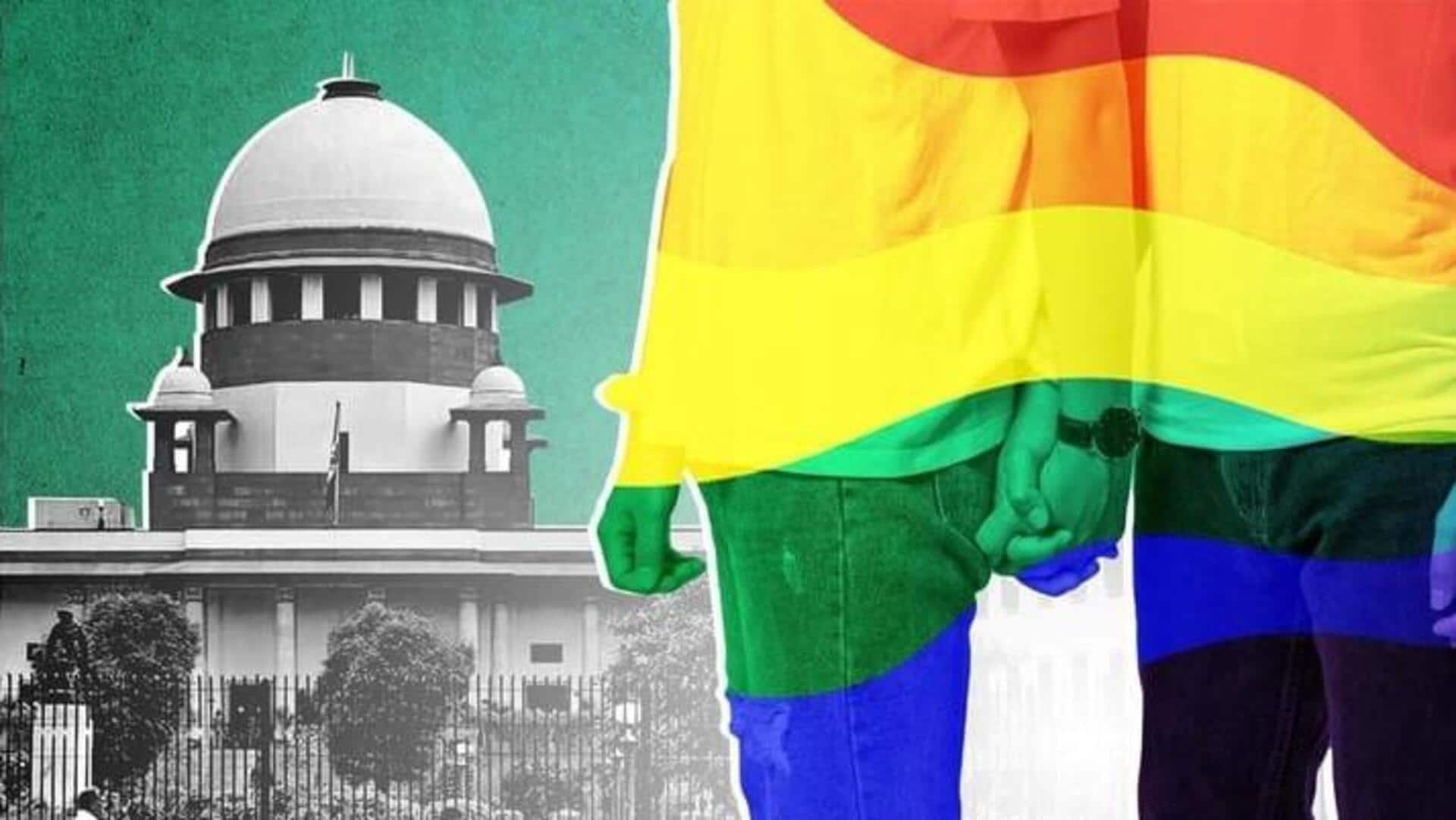
Supreme Court refuses to legalize same-sex marriage: Everything to know
What's the story
The Supreme Court on Tuesday ruled against legally recognizing same-sex marriages in a 3:2 verdict. The five-judge Constitution bench—headed by Chief Justice of India DY Chandrachud—said queer people can enter a union, but the right to marriage isn't a fundamental right. It observed the legislature must decide on recognizing same-sex marriages, asking the Centre to form a panel to decide on queer couples' rights/benefits.
Context
Why does this story matter?
The SC proceedings on same-sex marriages took place in April-May, and its judgment on the matter was reserved on May 11. The petitioners argued that being unable to marry legally violates their constitutional rights. However, the central government and various religious leaders strongly opposed same-sex marriages, saying it would be against the Indian culture, even though the SC's 2018 judgment decriminalized gay consensual sex.
Central government
'Parliament, state legislatures to recognize queer marriages': SC
Pronouncing the verdict, the SC said queer people have the right to enter a union as one cannot be restricted based on sexual orientation. But it said, "It's for the Parliament and state legislatures to legally recognize queer marriages." It also noted it cannot strike down or read words into the Special Marriage Act (SMA), which will take India back to the pre-independence era.
Sensitization
CJI directs Centre to sensitize public about queer rights
Chandrachud directed the Centre and state governments to sensitize the public about queer rights. He directed the Centre to launch a hotline for the queer community and create "Garima Grih" safe houses for those facing violence or harassment. The bench also said intersex children shouldn't be forced to undergo operations or therapy. It noted that the state must ensure queer people's protection and rights.
Supreme Court
SC direction against discrimination of LGBTQIA+ community
The SC directed the Centre, states, and union territories to ensure the queer community was not discriminated against. It told them there should be "no discrimination in the supply of goods and services" and "prevent harassment of any kind." The court asked the police to ensure that no queer persons are harassed. It also said such individuals should not be forced into sex operations.
Adoption
SC denies adoption rights to queer couples
As for adoption rights for queer couples, the SC bench denied the same to LGBTQ+ unmarried couples in a 3-2 verdict. However, CJI Chandrachud, who backed adoption rights for such couples, said, "Law cannot assume that only heterosexual couples can be good parents." He also noted that the current "adoption regulations are violative of the constitution for discrimination against queer couples."
Petitions
Know about petitions filed in the matter
The court heard at least 21 petitions filed by same-sex couples and LGBTQIA+ activists. The petitions sought marriage equality for queer unions under the Foreign Marriage Act, Hindu Marriage Act, and Special Marriage Act. Non-recognition of queer marriages has so far restricted LGBTQIA+ community members from accessing adoption rights, social security benefits, and medical autonomy that are enjoyed by heterosexual couples.
History
Why matter was referred to the Constitution bench
The matter was earlier heard by a smaller SC bench. However, it was referred to a larger bench on March 13. The CJI-led bench observed that the submissions on the issue have an interplay between constitutional rights and special legislative enactments, including the Special Marriage Act. The bench comprised of CJI Chandrachud and Justices SK Kaul, S Ravindra Bhat, PS Narasimha, and Hima Kohli.
Details
Petitioners sought SC's directions to reinterpret SMA
The petitioners, through their counsels, sought a verdict from the SC to reinterpret the 1954 SMA, which the court refused on Tuesday. They pleaded to change the provision "marriage between a woman and a man" to "marriage between persons" in the act. Moreover, the Centre had repeatedly contended legalizing same-sex marriages isn't in the court's domain but for the Parliament to legislate on it.
Facts
Centre's stance on same-sex marriages
On May 10, the Centre told the SC that any constitutional declaration made by it on pleas demanding legal validation for same-sex marriage might not be a "correct course of action". The government also cautioned about its societal ramifications saying that the top court wouldn't be able to deal with its fallout. It told the court that seven states and governments opposed the same.